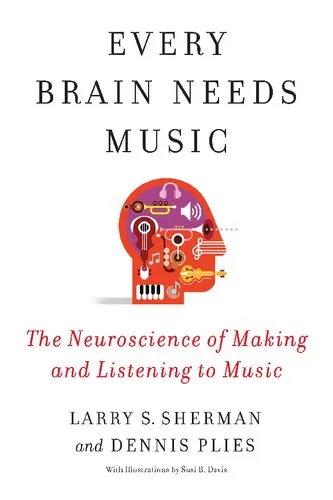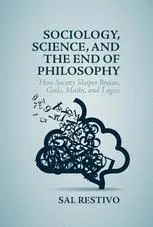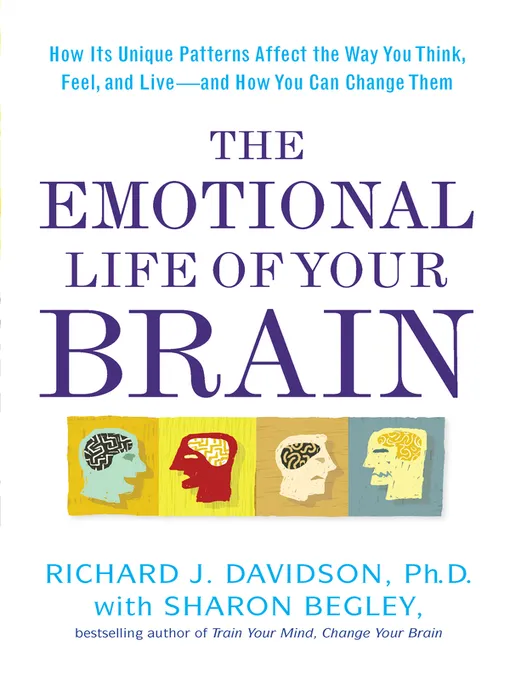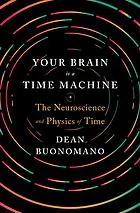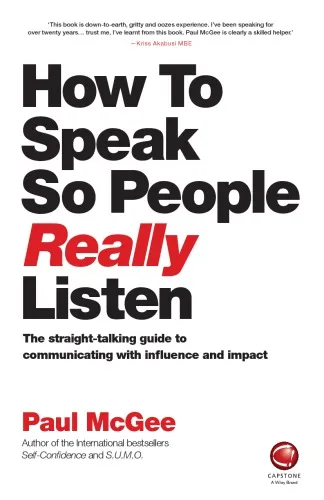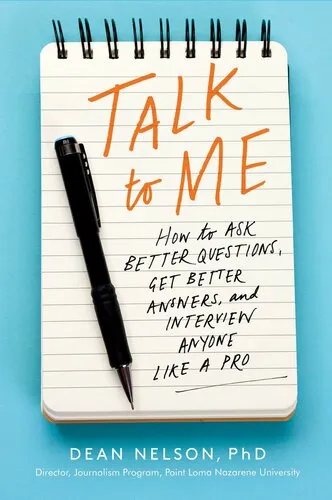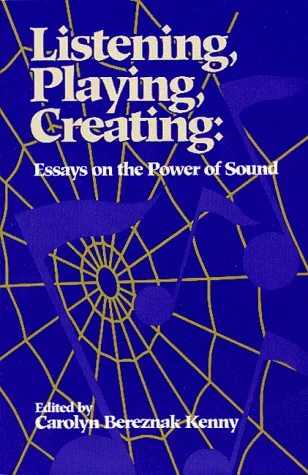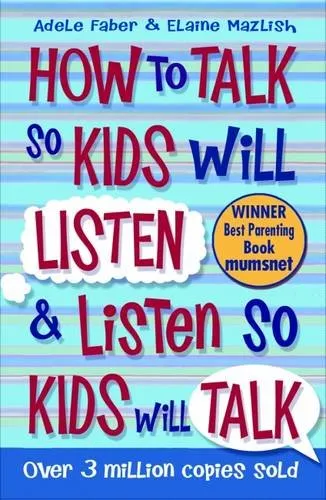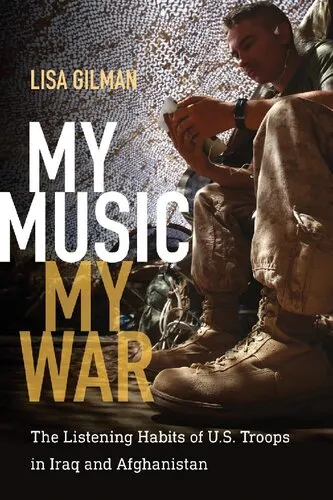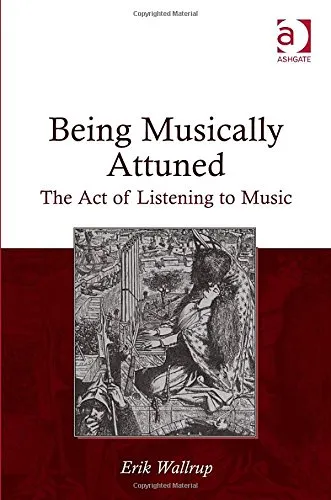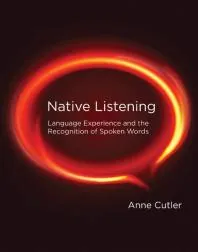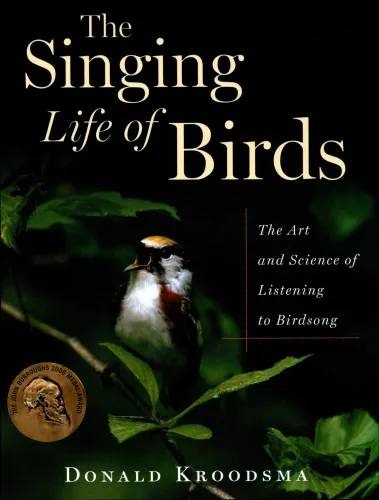Every Brain Needs Music: The Neuroscience of Making and Listening to Music
4.5
بر اساس نظر کاربران

شما میتونید سوالاتتون در باره کتاب رو از هوش مصنوعیش بعد از ورود بپرسید
هر دانلود یا پرسش از هوش مصنوعی 2 امتیاز لازم دارد، برای بدست آوردن امتیاز رایگان، به صفحه ی راهنمای امتیازات سر بزنید و یک سری کار ارزشمند انجام بدینکتاب های مرتبط:
معرفی کتاب "Every Brain Needs Music: The Neuroscience of Making and Listening to Music"
کتاب "Every Brain Needs Music: The Neuroscience of Making and Listening to Music" حاصل تلاش مشترک نویسندگان لری شِرمن، دنیس پلایز و سوزی دیویس است که به بررسی عمیق نقش موسیقی بر مغز انسان میپردازد. این اثر برجسته با ترکیبی از دانش عصبشناسی و هنر موسیقی، روایتی جذاب از تأثیر موسیقی و فرآیندهای شناختی بر زندگی انسان ارائه میدهد. نویسندگان به شکلی قابل فهم و علمی نشان میدهند که چگونه موسیقی در ذهن و احساسات ما نقش اساسی بازی میکند، از شنیدن تا خلق موسیقی.
خلاصهای کامل از کتاب
در این کتاب، نویسندگان نگاهی جامع به فرآیندها و مکانیسمهای علوم عصبشناسی هنگام مواجهه با موسیقی دارند. کتاب توضیح میدهد چگونه گوشدادن به موسیقی یا اجرای یک قطعه موسیقی میتواند بر بخشهایی از مغز تأثیر گذاشته و موجب تغییراتی در حال و هوای فرد، حافظه، و حتی قدرت حل مسائل شود.
کتاب از سه بخش کلی تشکیل شده است: در بخش اول، سازوکارهای عصبشناسی مرتبط با ادراک موسیقی، از جمله نحوه پردازش ریتمها و ملودیها توسط مغز، بررسی شده است. در بخش دوم، تأثیرات عمیق موسیقی بر احساسات، خلاقیت و تعاملات اجتماعی مورد بحث قرار میگیرد. و نهایتاً در بخش سوم، تجربههای عملی موسیقیدانان و شنوندگان و چگونگی ارتباط بین موسیقی و علم بازگو میشود.
نکات کلیدی کتاب
- ارتباط میان شکوفایی خلاقیت و گوشدادن به موسیقی.
- میانجیگری ریتم موسیقی در بهبود مهارتهای شناختی و احساسی.
- تأثیر مثبت موسیقی بر حافظه و مقابله با مشکلات شناختی ناشی از پیری.
- چگونگی خلق و اجرای موسیقی بهعنوان یک تمرین کامل برای سلامت مغز.
- نقش موسیقی در تقویت ارتباطات اجتماعی و همبستگی در گروهها.
جملات الهامبخش از کتاب
"موسیقی راه مستقیمی به سوی قلب و مغز انسان دارد و مانند یک میانبر عمل میکند. ریتمها و ملودیها بیشتر از کلمات معمولی توانایی انتقال معانی عمیقتر دارند."
"کسی که موسیقی میسازد، نه تنها احساسات خود را درمان میکند، بلکه در حال ایجاد یک تجربه بینظیر برای دیگران است."
"موسیقی دامنه گستردهای است که مرزهای جسم و روح را به یکدیگر متصل میکند."
چرا این کتاب مهم است؟
کتاب "Every Brain Needs Music" نگاه تازهای به تاثیرات خارقالعاده موسیقی بر علوم عصبشناسی ارایه میدهد. از طریق تحقیقات عملی و مثالهای واقعی، نویسندگان نشان دادهاند که موسیقی چیزی بیش از یک سرگرمی معمولی است. این کتاب نشان میدهد که موسیقی میتواند بهعنوان ابزاری قدرتمند برای بهبود زندگی، بهبود تواناییهای ذهنی، کاهش استرس و تقویت ارتباطات اجتماعی انسان عمل کند.
برای علاقهمندان به موسیقی، دانشمندان عصبشناسی، روانشناسان و حتی افراد عادی که بهدنبال بهبود کیفیت زندگی خود هستند، این کتاب یک منبع بسیار ارزشمند تلقی میشود. ارتباط عمیقی که کتاب بین علم و احساس ایجاد میکند، آن را به یک اثر الهامبخش و قابل تأمل تبدیل کرده است.
Introduction to 'Every Brain Needs Music: The Neuroscience of Making and Listening to Music'
Music is a universal language that transcends cultural, geographical, and even neurological boundaries. In Every Brain Needs Music: The Neuroscience of Making and Listening to Music, authors Larry S. Sherman, Dennis Plies, and Susi Davis delve into the fascinating intersection of neuroscience and music, exploring how music impacts the human brain, emotions, and overall well-being. This book is not just a technical exploration of the science behind music; it is also an invitation to understand why music plays such a pivotal role in our lives and how it enhances the human experience in extraordinary ways.
This book addresses questions many of us have pondered: Why does a particular song make us cry? How can practicing a musical instrument reshape the brain? And what is it about music that fosters a deep sense of connection between people? By blending rigorous scientific findings with accessible explanations and personal insights, the authors craft a compelling narrative that is both intellectually stimulating and deeply inspiring.
Detailed Summary of the Book
Every Brain Needs Music
The book begins by explaining the basics of neuroscience, making it easy for readers without a scientific background to grasp the foundational concepts. From there, it explores how the brain perceives, processes, and responds to music. By weaving together anecdotes, scientific studies, and the authors' personal experiences as musicians and researchers, the book presents a multi-dimensional perspective on how music influences our brains and lives. Topics include the fascinating connection between music and memory, the therapeutic role of music in mental health, and the transformative impact of learning to play an instrument.
The authors also examine current research on how music engages different parts of the brain simultaneously, fostering creativity, improving learning, and even aiding emotional regulation. The book delves into the ways music can heal, covering its role in reducing stress, managing pain, and aiding recovery from neurological illnesses such as stroke or Parkinson’s disease. Additionally, the authors provide practical advice to music enthusiasts, encouraging readers to further explore their own musical journeys, regardless of skill level or age.
Key Takeaways
- Music activates multiple brain regions: From the auditory cortex to the motor and emotional centers, music engages the brain like few other activities can.
- Making music changes your brain: Playing an instrument or singing can physically reshape neural pathways, increasing brain plasticity and enhancing cognitive skills.
- Music fosters connection and community: Shared musical experiences, from concerts to jam sessions, strengthen bonds and create shared emotional memories.
- Healing power of music: Music therapy is a powerful tool for addressing a range of neurological and emotional challenges, including stress, anxiety, depression, and trauma recovery.
- Accessible to all: You don’t have to be a professional musician to benefit from engaging with music; even listening and humming have profound neurological effects.
Famous Quotes from the Book
- "Music is not just sound organized in time; it is emotion encoded in neural activity."
- "When we make music together, our brains synchronize, creating a sense of unity that is unlike any other human experience."
- "Playing an instrument doesn’t just teach you music; it rewires your brain to think in new and creative ways."
- "In the brain’s symphony of activities, music stands as both composer and conductor."
- "Every brain, regardless of age or ability, craves music because it’s as vital to our mental landscape as air is to our lungs."
Why This Book Matters
Music is central to the human experience, yet few of us fully understand its profound impact on our brains, health, and emotions. This book bridges that gap, combining cutting-edge neuroscience with heartfelt storytelling to explain why music is so integral to our lives.
Whether you are a scientist, a musician, or simply a music lover, Every Brain Needs Music will deepen your appreciation for music and its role in shaping the human brain. It’s a call to action for anyone who wants to embrace the full spectrum of benefits music has to offer, whether by taking up an instrument, engaging in communal musical experiences, or simply tuning in to their favorite songs more attentively.
Ultimately, this book underscores a singular truth: that every brain—every person—needs music to thrive. It’s not just entertainment or background noise; it’s a powerful neurological tool for enhancing our lives and fostering human connection.
دانلود رایگان مستقیم
شما میتونید سوالاتتون در باره کتاب رو از هوش مصنوعیش بعد از ورود بپرسید
دسترسی به کتابها از طریق پلتفرمهای قانونی و کتابخانههای عمومی نه تنها از حقوق نویسندگان و ناشران حمایت میکند، بلکه به پایداری فرهنگ کتابخوانی نیز کمک میرساند. پیش از دانلود، لحظهای به بررسی این گزینهها فکر کنید.
این کتاب رو در پلتفرم های دیگه ببینید
WorldCat به شما کمک میکنه تا کتاب ها رو در کتابخانه های سراسر دنیا پیدا کنید
امتیازها، نظرات تخصصی و صحبت ها درباره کتاب را در Goodreads ببینید
کتابهای کمیاب یا دست دوم را در AbeBooks پیدا کنید و بخرید
1313
بازدید4.5
امتیاز0
نظر98%
رضایتنظرات:
4.5
بر اساس 0 نظر کاربران
Questions & Answers
Ask questions about this book or help others by answering
No questions yet. Be the first to ask!
